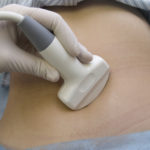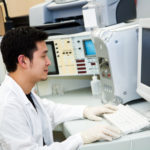
GPs should encourage blood pressure monitoring at home
A team of experts has recommended GPs encourage people with hypertension to monitor their blood pressure at home and use those readings in their day to day care. The University of Birmingham reports its researchers, along with colleagues at the Universities of Oxford and Cambridge, carried out a trial which showed that when GPs base … Continue reading GPs should encourage blood pressure monitoring at home

Omega-3 won’t improve children’s reading skills or memory
New research has found no evidence Omega-3 fish oil supplements help aid or improve the reading ability or memory function of under-performing school children. The University of Birmingham reports these findings are in contradiction to an earlier study run by the same team using the same supplement. In the second high quality trial of its … Continue reading Omega-3 won’t improve children’s reading skills or memory

Largest trial ever to investigate prostate cancer screening
Inviting men with no symptoms to a one off PSA test for prostate cancer does not save lives, according to results from the largest ever trial conducted by Cancer Research UK-funded scientists based at the University of Bristol. The findings are published in the Journal of the American Medical Association (JAMA). Researchers at the Universities … Continue reading Largest trial ever to investigate prostate cancer screening

Website names unreported drug trials
Institutions that fail to report the results of their drug and medical trials will be named on a new website. The BBC reports Trials Tracker logs which clinical trials have missed deadlines for reporting their results in the US. Some pharmaceutical organisations have been accused of burying unfavourable drug and medical test results. Dr Ben … Continue reading Website names unreported drug trials

Scanning technology could halve number of liver biopsies
A study jointly led by the University of Birmingham and University of Edinburgh has revealed that a new scanning technology could almost halve the number of liver biopsies carried out on people with fatty liver disease. The University of Birmingham reports the authors of the study, which was also carried out in collaboration with the … Continue reading Scanning technology could halve number of liver biopsies

Alternatives to seeing a GP unlikely to deliver benefits
The realities of implementing alternatives to face to face GP consultations, such as telephone, email, online and video consultations, mean that hoped for reductions in GP workload and increases in available appointments might not be realised. NHS policy encourages general practices to introduce alternatives to face to face consultations as a way of increasing access … Continue reading Alternatives to seeing a GP unlikely to deliver benefits

Risks to children of persistent postnatal depression
Postnatal depression which persists beyond six months after birth and is severe, increases the risk of children exhibiting behavioural problems, achieving lower GCSE mathematics grades at sixteen years old and having depression at eighteen years old. Postnatal depression which is persistent (whether moderate or severe) increases mothers’ risk of continuing to experience depressive symptoms beyond … Continue reading Risks to children of persistent postnatal depression

Not seeing the same GP increases hospital admission risk
Older patients who do not see the same GP over a period of time are at higher risk of emergency hospital admission than those who see the same or a small number of GPs, according to new research. The University of Bristol reports that its researchers, along with colleagues at the University of Oxford, found … Continue reading Not seeing the same GP increases hospital admission risk

Outcomes for diabetic foot ulcers worse than thought
New research published in Diabetic Medicine has shown that people with diabetes and an infected foot ulcer have worse outcomes than previously thought. In the first year after being seen at a clinic with an infected ulcer, 15.1% of study participants had died and 17.4% had had an amputation of part or all of their … Continue reading Outcomes for diabetic foot ulcers worse than thought

Hopes of reversing antibiotic resistance
Two recent studies led by the University of Bristol provide significant new hope in the fight against antibiotic resistance. By identifying what makes some bacteria resistant to the most commonly prescribed antibiotics, and how this can be reversed, the findings have demonstrated potentially life saving consequences and could help reverse the tide of antibiotic resistance. … Continue reading Hopes of reversing antibiotic resistance








